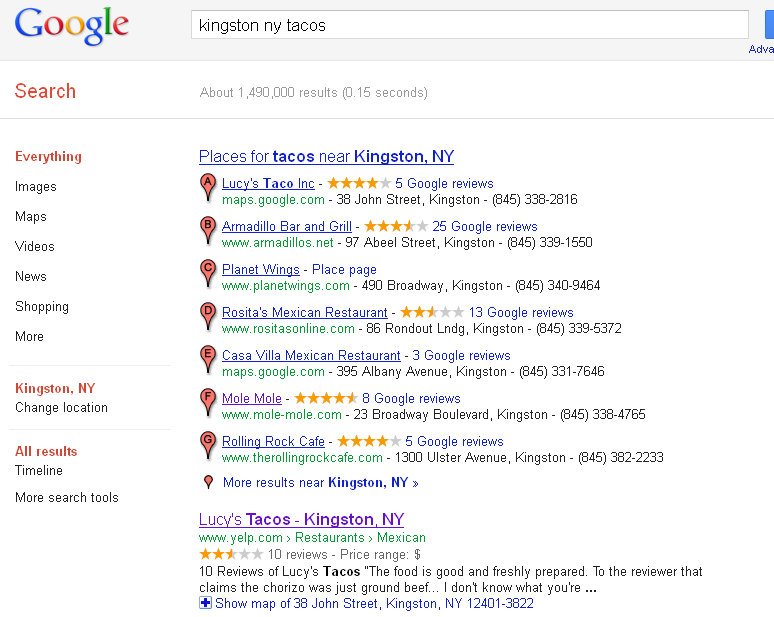Are We Living in the End of Advertising?
Julian Sanchez thinks so:
Imagine that, for nearly any product consumers encountered, some kind of aggregate rating—based on whatever criteria the individual has determined are most important—would simply appear, with minimal effort. Simply looking at an aisle of products—or even passing shops on the street—I might effortlessly learn which were deemed most satisfactory by people with tastes similar to mine… With such information more directly available, marketing would become far less relevant to the buyer—and a far less worthwhile investment for the producer.
I think what Sanchez is arguing here are two things, namely a) consumer decisions will increasingly rely on information culled from the internet, and b) local search will be the dominant paradigm in structuring users’ experiences online. The first point seems undeniably true, and the second at least plausible. In an era when Google can tailor their search engine to specifics of individual searchers—taking into account their prior search history, browsing patterns, and location—everything is local to the individual’s tastes and needs. Searching for a place to eat along the interstate is no different than searching for a pair of shoes, a record, or a computer. But this line of thinking fails to take into account the diverse nature of search. Even in situations that seem uniquely suited to local search—such as finding a place to eat during a road trip—individuals are likely to be influenced by other factors than customer reviews.
Hudson Valley Product Branding
As a concrete example, let’s consider a traveler passing through the beautiful Hudson Valley. As he passes through Kingston, a sudden, irrepressible craving for tacos overtakes him. Pulling out his smart phone, he searches: “kingston ny tacos” and sees this:
It’s fair to say that Lucy’s Tacos has won this battle. But is it because they have the best reviews? Hardly—Mole Mole and Rolling Rock Café both have equally as good if not better reviews with more customers reviewing. Perhaps it would be more rational to choose Mole Mole, but that probably won’t happen. Instead our traveler, and most people who query the same search, will choose Lucy’s Tacos because they appear first in the results twice—first in the list of local results, and first in the general results. The Rolling Rock café, in contrast, probably won’t even get a click—buried as they are so far down in the rankings.
Or perhaps he will simply go to Taco Bell, which is wedged in the middle of Lucy’s local dominance:
What Product Branding Means for Restaurants
Clearly, Taco Bell has not done as well here as the other local spots. But should we conclude from this that the chain restaurant has put no effort into effective marketing? Not at all. On the contrary, the Taco Bell brand is well represented in their social media marketing—their official twitter has 144,000+ followers, and their Facebook Fan page clocks in at an impressive 7.5 million likes. It’s just that local search and review are less important to Taco Bell than promoting their brand and ensuring that it is widely recognized. And it is worth their while to promote their brand because not everyone will feel inclined to consult Yelp or Zagat when making their purchasing decision—even when such reviews are as easily accessible as they are today. Such reviews, first off, are not perfect predictors of quality, and even if they were, people are not fully rational, utility maximizing automatons—a great deal of behavior is random if not irrational, and the bias towards familiarity is at least as strong as that towards exploration. Big brands know their customers well, and based on the resources they expend at maintain their image, it is fair to say that they know the importance of branding. The internet may change the way such brands are communicated, but it is unlikely to change the basic dynamics of consumer behavior that make branding effective in the first place.
Brand Recognition and the Future
So we probably aren’t living in the end of advertising, or in a world where user reviews will be the all-important determinant in consumer decisions. To think so is to assume that the internet is a homogenous place, when it has tended to become more diverse with time. Local search has its particular purposes, as do big branding efforts. The key to a successful online marketing campaign is to understand first and foremost the reasons for getting online, and then allow particular details about strategy to flow out of that.